https://www.youtube.com/watch?v=lLZ-3TSoe9E
Let me tell you a story about the invisible thing that fuels anxiety and depression, and then I’m going to teach you some skills to stop letting it control you and how you feel. So one day when I was super pregnant, super tired, exhausted, overwhelmed with parenting three little kids and
00:00:17growing a human inside of me, I had to go to Home Depot to fix something in the house. And I pulled into the closest parking spot I could find, but then I realized that the truck in front of me in the stall in front of me was sticking out into my stall a little bit so I couldn’t pull all the way
00:00:33in. And twisting around to like back out find a new spot just sounded like painful and exhausting with my huge stomach. So I just checked to make sure that my van was in the lines, and then I went into the store. I got what I needed, came back out, and when I got to my van I found that someone
00:00:50had left a business card on my window. But it wasn’t a regular business card. It said, “You suck at parking.” It said, “F you. Learn to drive, you idiot.” And he gave me the finger. Now, normally I would have laughed this off, but not today. Not at 8 months pregnant. “Why are people so cruel?” I
00:01:12thought. “Poor me. I’m having a bad day, and this mean person needed to come make it worse.” Right? “What’s their stupid problem?” I thought. “They took the time to print out you-suck-at-parking business cards.” Okay. I definitely cried a little bit on the way home, and I’m going to blame that
00:01:32on the pregnancy hormones. So why was I so upset? It would be easy to say that I was upset because someone put a mean card on my window, but that is not true. Our emotions do not come from the situation; they come from how we think about the situation. I wasn’t upset because of the piece
00:01:50of paper; I was upset because I interpreted that card to mean that people were attacking me, that I was surrounded by a mean and dangerous world, that they were out to get me. And this triggered the stress response, the fear response. Without even realizing it, I interpreted that situation
00:02:09as threatening. And this was thanks to automatic negative thoughts. We are all deluded when we think that the situation, the trigger is what makes us feel a certain way. You see, there are hundreds of possible ways I could have interpreted that situation. If I had just thought, “Meh,
00:02:27they’re probably just an unhappy human being with nothing better to do. Meh. Whatever,” I probably wouldn’t have cared much. Maybe I would have felt a little calloused. If I had thought “Hm, maybe they’re working on their anger management. They put a card on my window instead of slashing
00:02:42my tires,” then I would have felt relieved. And if I’d thought, “Maybe they’re actually a chronic people pleaser who is doing therapy homework to be more assertive and this is the way they’re learning and practicing,” I would have left feeling like really happy for them, proud of their
00:02:59accomplishments. How we think about a situation directly impacts how we feel. Automatic negative thoughts are involuntary, habitual thoughts. They focus on the negative. They exaggerate problems, or they predict disaster. the impact of automatic negative thoughts is profound. they can distort
00:03:18your perspective, trigger strong emotions, and influence your behavior in harmful ways. So for example, you might not go to a social activity because your automatic negative thought says you’ll have a terrible time, and that can lead to missed opportunities, which leads to isolation
00:03:33and a cycle of feeling worse and worse. in this video you’ll learn about the automatic negative thoughts that fuel the anxiety cycle and lead to feeling overwhelmed or hopeless. you probably aren’t even aware of the types of thoughts that take you there, so we’ll explore them,
00:03:49and then we’ll talk about both a CBT and ACT approach to dealing with them. [Music] Most people don’t know that when you have depression, some physical structures in your brain actually shrink. But most people also don’t know that when you change the way you think,
00:04:12you can actually change the physical structure of your brain. Modern imaging has given us a window into the brain to show us that the brain has plasticity, meaning it changes depending on how you think and how you act. Now, most people have never been taught these simple ways to improve
00:04:28mental health, so that’s why I made the course Change Your Brain: 10 Essential Skills to Combat Anxiety and Depression. In this course you’ll learn a bunch of ways that your mind and body are connected. You’ll learn what to eat to combat depression and anxiety and how light therapy
00:04:43actually changes the serotonin levels in your brain and research shows that it’s more effective than anti-depressants for mild to moderate depression. You’ll learn that when you improve your sleep, 87% of people see their depression symptoms decrease. These skills are all all backed
00:04:59by research, and many of them only take a few minutes each day. So if you’d like to learn more, check out the link below. The course is backed by a 30-day satisfaction guarantee, so if you’re just curious about what the research says about how to change your brain or if you’re ready to
00:05:15improve your depression or anxiety, check it out. Your life can get so much better. I saw this meme the other day. My top three assumptions when the doorbell rings: number one, murderer. Number two, police telling me that everyone is dead. Number three, that book I ordered on positive thinking.
00:05:33Isn’t this how anxiety works? But usually it’s on a much quieter, like chronic scale. We are swimming in automatic thoughts that we don’t even know are there. People have between 6 and 60,000 thoughts a day. I don’t know many people who only have six. We are constantly making assumptions
00:05:50about what others think about us, about some imagined future that we’re worrying about, about the catastrophic outcomes that are sure to occur. Now, you’re most likely not anxious simply because of your genes; you’re anxious because you perceive the world to be a dangerous place.
00:06:07And you perceive the world as a dangerous place because you’re buying into automatic negative thoughts. When we look at the anxiety cycle, there’s some kind of stimulus that we interpret as being dangerous, and that’s what triggers the fight/flight/freeze response – the interpretation.
00:06:23So the vast majority of the time it’s the interpretation that makes us believe we’re in danger. But most of the time we don’t realize that. We think that it’s the stimulus that made us feel a certain way. Victor Frankl said, “Between the stimulus and response there is a space, and
00:06:41in that space lies our freedom and power to choose our responses. In our response lies our growth and our freedom.” And he would know – he survived the Nazi concentration camps when his family didn’t. He survived the horrors of World War II as a Jew, and he managed to find purpose and
00:06:59meaning and goodness in life. When we feel fear and anxiety, we usually don’t realize that we are looking through the lens of our automatic negative thoughts. And these thoughts are often fearful. These thoughts are like we’re walking down the street in Las Vegas, and there’s people selling
00:07:16stuff. Right? “Hey, you need a new phone.” “You probably need an all-you-can-eat steak dinner.” “You definitely need to see this show.” “Hey, buy a hot dog.” “Hey, want some porn?” Right? It’s a normal experience to run across people selling stuff, and it’s a normal experience to
00:07:31have random thoughts pop into your head. But most of us don’t realize that we’re buying into these thoughts. It’s like we don’t have any skills to brush them off, and instead we feel the need to talk with each salesperson, listen to what they say, and buy what they’re selling. This is what’s
00:07:47called buying your thoughts. It’s when you believe them and invest in them without even questioning if you want what they’re selling. And you don’t even realize it. We don’t even realize that the reason we’re feeling the way we are is because of how we’re thinking thinking because the thoughts
00:08:00are just like the air we breathe. Let me share some examples with you. I asked my audience what their automatic negative thoughts are, and here’s some of their responses: “It’s my fault for 100% of everything going wrong, and then I shame myself.” “I’m such a failure.” “I’m all alone.
00:08:19I’m not lovable. I’m broken.” “I won’t be able to sleep again at night, and I won’t be able to sleep at all in my life.” “It’s too much. I can’t handle it, and it will break me down.” “This depressive episode is never going to go away.” “Something good has just happened, so something devastating
00:08:37is about to happen next.” “Why am I like this? Why am I like a terrified Chihuahua when other people around me are relaxed and don’t seem to anticipate doom at any moment?” “They’re just saying that to sound nice” (about any praise or compliments). “I always mess things up.” “No one really cares
00:08:54about me.” “I’m never going to be good enough.” “Everyone is judging me right now.” Notice how you feel in your body after hearing those. Honestly, when I read through the comments I felt a little heavy, a little discouraged, a little anxious. So what do we do about your automatic negative
00:09:12thoughts? Step one is getting super clear on what these thoughts are. In the next segments in this um section of the course, we’re going to talk about some Kung Fu with your thoughts. But for now we just have to take these thoughts from being invisible little whispers to being concrete
00:09:29thingies. Right? You’ve got to catch yourself thinking your worst thoughts. So go back to the section in your workbook where you wrote down the situations where you tend to feel anxiety. Now we’ve got to explore the thoughts that are in between the situation and the anxiety. I’m going
00:09:46to give you some examples. Okay. So my sister once told me this um awesome story about this time she was hanging out with a brand-new friend. And they went to the beach and they hung out together with all their kids. And then she gets home. And this friend was kind of a like very clean and tidy,
00:10:01afraid-of-germs type person. They get home, and my daughter finds a nit, like one baby lice in her daughter’s hair after playing with the clean family. So she started having these thoughts, “Oh my gosh, she’s going to hate me. She’s going to tell others how gross I am. She’s never going
00:10:17to hang out with me again. No one will.” And then, you know, that creates the anxiety response. Why would our body have an anxiety response around rejection? Well we used to as, you know, a species completely depend on our community for our survival. So our brain is like, “Oh my gosh,
00:10:35if I get rejected I’ll die of starvation. I’ll be kicked out of my village, and I’ll, and I’ll die.” So when we notice these thought, we can challenge them, or we can separate ourselves from them and realize, you know what, we’re probably not going to die. She might not even
00:10:50reject me. She might not even be mad. She might not hate me.” You know, things like that. We can challenge those thoughts. We separate ourselves from them, defuse them. Okay, let’s take another one. You’re laying in bed, got a big day ahead of you, and you can’t fall asleep. You might
00:11:06start having thoughts like, “I’m never going to get enough rest. I’m going to be tired all day tomorrow. I’m going to snap at my kids all day or I won’t be able to work very well. it’s going to be awful to get back to sleep.” Um and that leads to really big fears, catastrophizing, right? “Oh,
00:11:24I’ll ruin my relationship with my kids, and they’ll cut me off when I’m older.” And again, that’s that rejection fear, like now I’ll die starvation or I’ll be alone forever. I’ll feel pain. I’m afraid of pain.” These are the core fears, right? Um rejection, um humiliation, pain,
00:11:42death, failure, loss of identity. These are the four fears we worry about. Okay. Here’s another one: your boss gives you some negative feedback at work. Your thoughts around this: “I’m such a failure. I never do anything right. He’s such a jerk. I’m never good enough.” Um that could lead
00:11:59to “I’m going to get fired.” Yeah. That’s that’s a survival threat to your brain, so it’s going to kick off the anxiety response. “My husband is going to be disappointed in me.” Rejection. “We’re going to run out of money and die of starvation” Right? Again, there’s that survival response. Now,
00:12:12what would happen if instead of those thoughts we could challenge those thoughts and be like “Well, this is an opportunity to learn. I can learn new things.” Or “Oh, my boss must care about my development if he’s willing to give me feedback.” I mean, there’s different ways to think about this
00:12:25situation, right? Or you could just say, “Oh, I’m going to notice those thoughts. Hello, failure story. Man, you sure come up a lot. I don’t really have to believe you.” Okay, we’ll get back to that later though. Okay. Uh here’s another example: I feel anxious or depressed. You might think,
00:12:40“This anxiety is never going to go away.” “This depression is never going to go away.” And then that thought leads to the belief, “I will feel miserable forever, and my life is ruined.” Okay. So how are these automatic negative thoughts impacting your life? How do they impact how you
00:12:58feel? Okay. Step two: thoughts aren’t facts. Your brain makes stuff up all the time. Okay. So you spend your day with these thoughts swirling around your head, and they trigger the anxiety cycle. And the crazy thing is, you don’t even realize it. So how are we going to take another step toward
00:13:14stopping the anxiety cycle? The second step is realizing that your brain is a word machine. It literally just makes a ton of thoughts all the time. Its job is to crank out random thoughts. So your job is to create a little space between you and the thoughts. There are two approaches to
00:13:35managing automatic negative thoughts: CBT and ACT. Now, I think they both have merit, so let me teach them to you. The classic approach to negative thoughts is from CBT, cognitive behavioral therapy. With CBT it’s like mental Judo. You learn to spot these thoughts, challenge them, and swap
00:13:54them out with thoughts that are more balanced and realistic. You’re basically engage, engaging with the thought in order to choose something more helpful. So if we take the thought, “My boss gave me negative feedback at work,” the classic CBT approach is to say, “Are these thoughts
00:14:09accurate?” and then replace them with thoughts like, “Sometimes I succeed. I often do things right. Last week I did a great job with that problem we had with widgets,” and then you bring to mind these alternate facts. Right? Say like, “Oh, I messed up, but mistakes happen.” Or “I’m
00:14:27going to learn new skills to solve this. I can get through this. I always do.” Right? It, this can be a really simple but a powerful way to stop buying these negative thoughts and then replace them with something more accurate and helpful. And there’s a worksheet in the workbook to help you go through
00:14:42this process. And just as a reminder, during this course I’m going to teach you a ton of skills. And it’s not like you can just do them one time and then it’s all better. Like these are exercises that you’re going to want to practice over and over for a while until they become easier and
00:14:59easier for you to do throughout your day. Okay. So let’s talk about the second approach, what ACT calls cognitive defusion. With acceptance and commitment therapy you don’t fight the automatic negative thoughts. Instead, you learn to sit with them, notice them, but not let them boss you
00:15:14around. Um you’re also encouraged to take actions that line up with your personal values. This can give your life a sense of meaning and purpose, which makes the ants less powerful. So if anxiety is believing the salesman, you know, um believing those negative thoughts that say everything is
00:15:32awful, freedom isn’t arguing with the salesman; it’s not debating with them. Sometimes when we argue with our thoughts or we spend a lot of time ruminating on them or analyzing them, we just end up overthinking and feeling more confused and miserable than ever. This is called
00:15:48cognitive fusion, right, where we might buy the thoughts or we’re so engaged with our thoughts, arguing with them and debating them, that we don’t really have space to be present, to live our life. We just keep going in circles. Like, it’s like you’re in a debate with the salesperson. So even
00:16:06if we aren’t buying what they’re selling, if we’re arguing with the salesperson or debating facts with them we aren’t going where we were going. We aren’t walking down the sidewalk in the direction we’re going. We’re just stuck there arguing with our thoughts. And this is a typical overthinking
00:16:19pattern with anxiety and depression. Freedom is knowing where we’re going when we’re walking down the street, knowing what we do and we don’t want, and it also means choosing to engage with a salesman only if it helps us. Right? So to do this we need a little bit of space from the salesman,
00:16:35and this is called cognitive defusion. So instead of debating our thoughts, we need to learn to notice these thoughts, separate ourselves from the thoughts, and then choose what thoughts are going to be helpful for us to live the life we dream of. Maybe I want to buy that churro, but I definitely
00:16:50don’t want to see that show in Las Vegas. Right? We need to get better at distancing ourselves from the salesman so that we can evaluate what’s going to be helpful for us. This is a skill you can learn and you can practice a lot, but you can also just simply switch from saying like,
00:17:06“I’m such a loser” to saying “I’m having the thought that I’m a loser.” Instead of saying, “I hate feeling anxious” you could say “I’m having the thought that I hate feeling anxious.” All you’re doing is creating a degree of separation from your true self and your word machine. So
00:17:23there are some really practical ways to learn to do this. So this this video is already getting too long, so we’re we’re going to practice more cognitive defusion skills in the next segment. I just wanted to give you an overview. So from my perspective both CBT and ACT approaches can
00:17:38be quite helpful. I’ll often try the CBT first, so like to a salesman, “No thanks, I don’t need a vacuum cleaner.” Um or to your negative thoughts, “No thanks, I’m I’m not a complete loser.” And then if that thought is super persistent I’ll just let it be there and I’ll redirect my attention,
00:17:55essentially ignoring the salesman and walking on. “Dear mind, thank you for that thought, but it’s not super helpful. Okay. Now, back to what I was doing.” Just allowing that thought to be there and redirecting your attention back to your value, direction, or the present moment.
00:18:12So just to summarize: automatic negative thoughts are the habitual, involuntary thoughts that our word machine of a brain pops out all the time. They’re often false, unhelpful, and they directly contribute to anxiety because that perception of danger, that interpretation that a situation
00:18:28is dangerous or threatening triggers the fear response. You can learn to notice these thoughts for what they are – just thoughts – challenge them, and replace them with something more helpful to you, whether that’s a more realistic thought or a shift in attention to what really
00:18:44matters to you. Automatic negative thoughts don’t have to control your life. Okay. Your challenge for the next week: sit down with your workbook and explore what kind of interpretations lead you to feeling anxious. See if you can explore the automatic negative thoughts that make you
00:18:58feel feel like you’re in danger. Do this at least once per day for one week. And it’s probably best to just schedule in a time to do this instead of waiting until you’re anxious to do it. Um and you can print extra copies of the worksheet from the paid course. Okay. Thank you for being
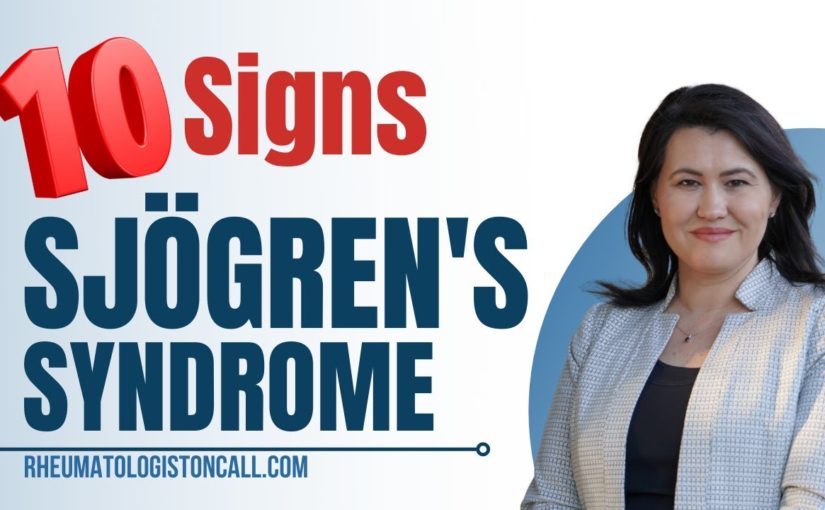
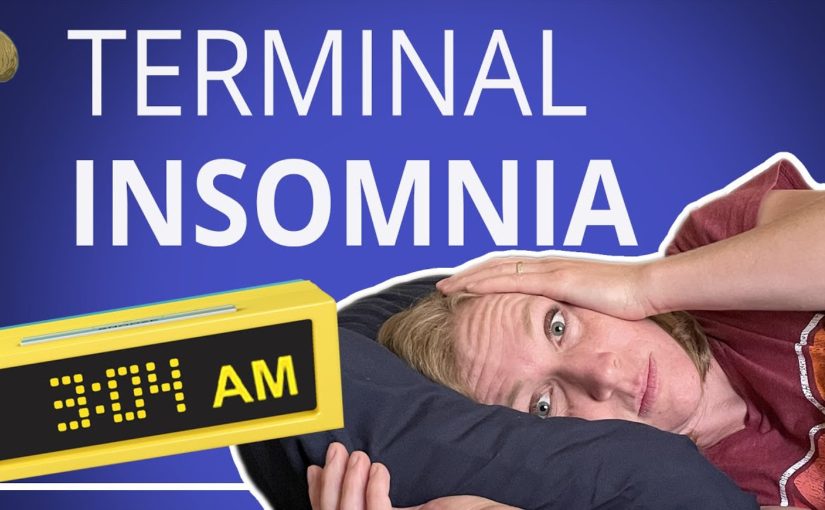

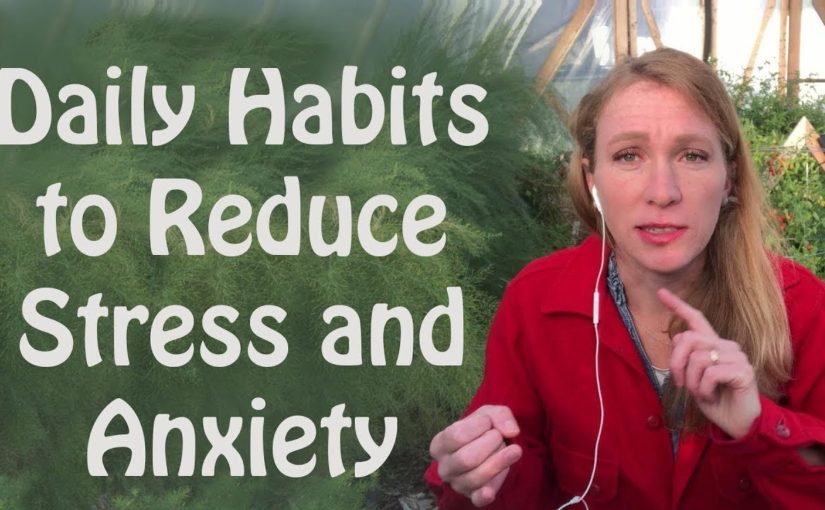
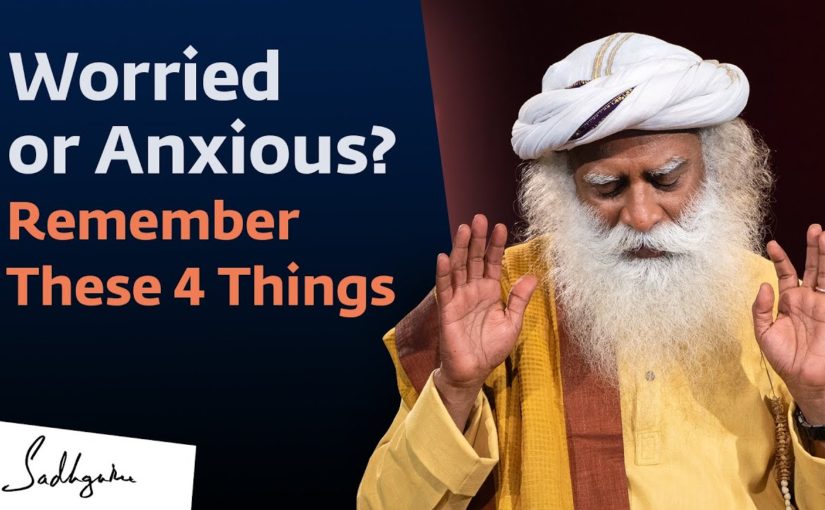
 We know many things. We can do many things, But we do not know anything in its entirety, So this is the nature of existence.
If you pay attention to it, naturally, your thoughts and emotions will sink into the background.
You can still enjoy them, But you know how insignificant it is.
So it’s very important that if you want to experience the multifarious dimensions of life, you have to be nonserious.
You become serious only because you have taken your existence too seriously, though we exist here for a minuscule amount of time in this cosmos.
This is a vast cosmos, The very planetary system, the solar system in which we exist is a speck On that planet.
Earth is a micro speck In that micro speck, the place you live or the city you live is a super micro speck.
In that, you have become a big man or woman, and that’s the reason why you’re so serious about life.
It’s a brief amount of time that you have as life In this.
If you take yourself too seriously, you are one big joke. The secret of life is to see everything with a nonserious eye but to be involved like a sport, So be a sport for life.
If you want to be a sport for life, you have to be able to see that your existence is of consequence for the times in which we live, but not of eternal consequence.
Unless you touch the eternal dimension of who you really, are It’s such a brief life, only in doing what you truly care for, will your life become worthwhile If genuine involvement has to come in your life. For you to give yourself absolutely, you must be doing something that truly truly matters to you.
It’s, important that you find that When I say it’s important to find that you, don’t have to spend half your life.
Looking for what is my passion, No, You just have to dig into this ability you making everything yours When everything is yours.
This whole world is yours.
This cosmos is yours, So when it is a part of you, if you involve yourself absolutely and constantly strive to create what matters to you, what you care for, then your existence itself will be worthwhile, not necessarily your actions, what you achieve and may not achieve, but your very existence will be truly worthwhile because just to breathe and be is a phenomenon Laughs, There are no greater phenomena than life If this is not worthwhile, what is.
We know many things. We can do many things, But we do not know anything in its entirety, So this is the nature of existence.
If you pay attention to it, naturally, your thoughts and emotions will sink into the background.
You can still enjoy them, But you know how insignificant it is.
So it’s very important that if you want to experience the multifarious dimensions of life, you have to be nonserious.
You become serious only because you have taken your existence too seriously, though we exist here for a minuscule amount of time in this cosmos.
This is a vast cosmos, The very planetary system, the solar system in which we exist is a speck On that planet.
Earth is a micro speck In that micro speck, the place you live or the city you live is a super micro speck.
In that, you have become a big man or woman, and that’s the reason why you’re so serious about life.
It’s a brief amount of time that you have as life In this.
If you take yourself too seriously, you are one big joke. The secret of life is to see everything with a nonserious eye but to be involved like a sport, So be a sport for life.
If you want to be a sport for life, you have to be able to see that your existence is of consequence for the times in which we live, but not of eternal consequence.
Unless you touch the eternal dimension of who you really, are It’s such a brief life, only in doing what you truly care for, will your life become worthwhile If genuine involvement has to come in your life. For you to give yourself absolutely, you must be doing something that truly truly matters to you.
It’s, important that you find that When I say it’s important to find that you, don’t have to spend half your life.
Looking for what is my passion, No, You just have to dig into this ability you making everything yours When everything is yours.
This whole world is yours.
This cosmos is yours, So when it is a part of you, if you involve yourself absolutely and constantly strive to create what matters to you, what you care for, then your existence itself will be worthwhile, not necessarily your actions, what you achieve and may not achieve, but your very existence will be truly worthwhile because just to breathe and be is a phenomenon Laughs, There are no greater phenomena than life If this is not worthwhile, what is.


 If that’s just what smelling it can do? What about eating rosemary? We have studies on alertness and cognition and reduced stress hormone levels, by inhaling rosemary.
However, there were no clinical studies on cognitive performance following ingestion of rosemary.
Until now, Older adults, average age 75 were given two cups of tomato juice, with either nothing or a half.
A teaspoon of powdered rosemary, which is what one might use in a typical recipe, or a full teaspoon, two teaspoons, or over a tablespoon of rosemary powder, and they even gave them some placebo pills to go with it to even further eliminate any placebo effects.
Speed of memory is a potentially useful predictor of cognitive function during aging, and what they found is that the lowest dose had a beneficial effect, accelerating their processing speed, but the highest dose impaired their processing speed, maybe because the half-teaspoon dose improved alertness, while the 4 Teaspoon dose decreased alertness, So rosemary powder at the dose nearest to normal, culinary consumption demonstrated positive effects on speed of memory.
The implicit take-home message being more isn’t necessarily better. Take high doses of herbal supplements extracts tinctures, just cooking with spices is sufficient.
A conclusion, no doubt pleasing to the spice company that sponsored the study.
No side effects were reported, but that doesn’t mean you can eat the whole bush.
This poor guy swallowed a rosemary twig which punctured through the stomach into his liver, causing an abscess from which 2 cups of pus and a 2-inch twig were removed, so explore herbs and spices in your cooking Branch out.
Just leave the branches out.
If that’s just what smelling it can do? What about eating rosemary? We have studies on alertness and cognition and reduced stress hormone levels, by inhaling rosemary.
However, there were no clinical studies on cognitive performance following ingestion of rosemary.
Until now, Older adults, average age 75 were given two cups of tomato juice, with either nothing or a half.
A teaspoon of powdered rosemary, which is what one might use in a typical recipe, or a full teaspoon, two teaspoons, or over a tablespoon of rosemary powder, and they even gave them some placebo pills to go with it to even further eliminate any placebo effects.
Speed of memory is a potentially useful predictor of cognitive function during aging, and what they found is that the lowest dose had a beneficial effect, accelerating their processing speed, but the highest dose impaired their processing speed, maybe because the half-teaspoon dose improved alertness, while the 4 Teaspoon dose decreased alertness, So rosemary powder at the dose nearest to normal, culinary consumption demonstrated positive effects on speed of memory.
The implicit take-home message being more isn’t necessarily better. Take high doses of herbal supplements extracts tinctures, just cooking with spices is sufficient.
A conclusion, no doubt pleasing to the spice company that sponsored the study.
No side effects were reported, but that doesn’t mean you can eat the whole bush.
This poor guy swallowed a rosemary twig which punctured through the stomach into his liver, causing an abscess from which 2 cups of pus and a 2-inch twig were removed, so explore herbs and spices in your cooking Branch out.
Just leave the branches out.

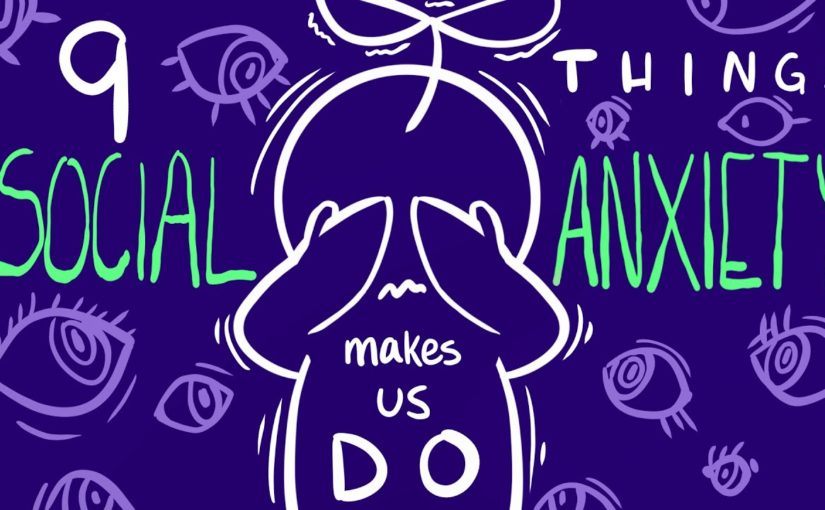
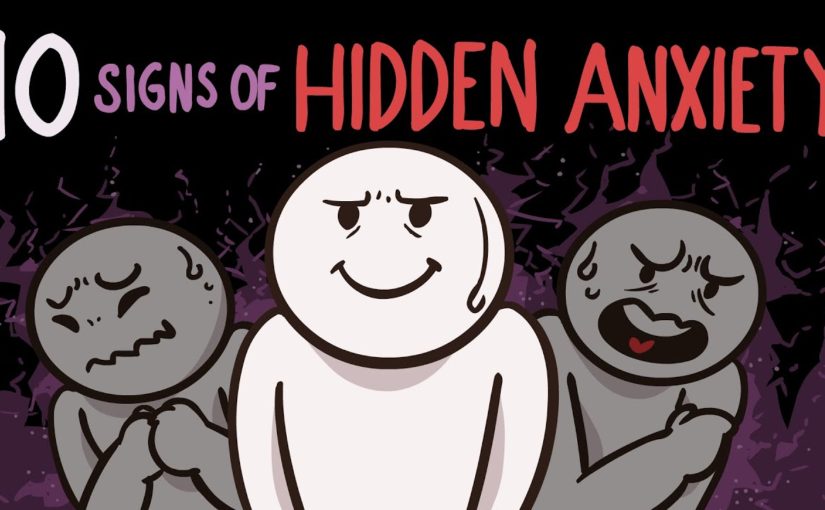
 Life isn’t always kind to us, and self-love and a balanced lifestyle don’t come easily. Living with anxiety, especially if it’s hidden or suppressed, can make it hard for us to feel good about ourselves and let ourselves feel happy. It makes us believe that we don’t deserve it and traps us in a vicious cycle of negative self-talk and constant pressure to be perfect. 9. You have a lot of negative thoughts. Are you a pessimist who is quick to find the downsides in every situation? Do you find yourself getting upset or stressed out over even the most minor inconveniences? Is every day a constant battle with yourself against the spiral of panicked and rational thoughts you have? In 1997, famed psychologist and cognitive therapist, Aaron Beck, termed this kind of thought pattern as catastrophic thinking, which he often observed in his patients who suffered from anxiety. And 10. You experience physical symptoms. Sometimes anxiety can be entirely physical because while your conscious mind may not always be aware of your anxiety it will definitely make itself known to your body.
Things like erratic heartbeats, chest palpitations, muscle tension, a clenched jaw, shaky hands up sweating are all indicative of anxiety. Your body may be trying to let your mind know that you’re feeling anxious and stop it before it gets any worse. Do you relate to any of the problems listed here? Or do you do your best to seem ok? And hide your symptoms because you feel embarrassed about your anxiety? The truth is: you’re not alone and having mental health issues is nothing to be ashamed of.
What do you plan to do next? Let us know in the comments below! Don’t forget to like this video and subscribe to Psych2Go for more psychology content. Thanks for reading and we’ll see you soon…
Life isn’t always kind to us, and self-love and a balanced lifestyle don’t come easily. Living with anxiety, especially if it’s hidden or suppressed, can make it hard for us to feel good about ourselves and let ourselves feel happy. It makes us believe that we don’t deserve it and traps us in a vicious cycle of negative self-talk and constant pressure to be perfect. 9. You have a lot of negative thoughts. Are you a pessimist who is quick to find the downsides in every situation? Do you find yourself getting upset or stressed out over even the most minor inconveniences? Is every day a constant battle with yourself against the spiral of panicked and rational thoughts you have? In 1997, famed psychologist and cognitive therapist, Aaron Beck, termed this kind of thought pattern as catastrophic thinking, which he often observed in his patients who suffered from anxiety. And 10. You experience physical symptoms. Sometimes anxiety can be entirely physical because while your conscious mind may not always be aware of your anxiety it will definitely make itself known to your body.
Things like erratic heartbeats, chest palpitations, muscle tension, a clenched jaw, shaky hands up sweating are all indicative of anxiety. Your body may be trying to let your mind know that you’re feeling anxious and stop it before it gets any worse. Do you relate to any of the problems listed here? Or do you do your best to seem ok? And hide your symptoms because you feel embarrassed about your anxiety? The truth is: you’re not alone and having mental health issues is nothing to be ashamed of.
What do you plan to do next? Let us know in the comments below! Don’t forget to like this video and subscribe to Psych2Go for more psychology content. Thanks for reading and we’ll see you soon…
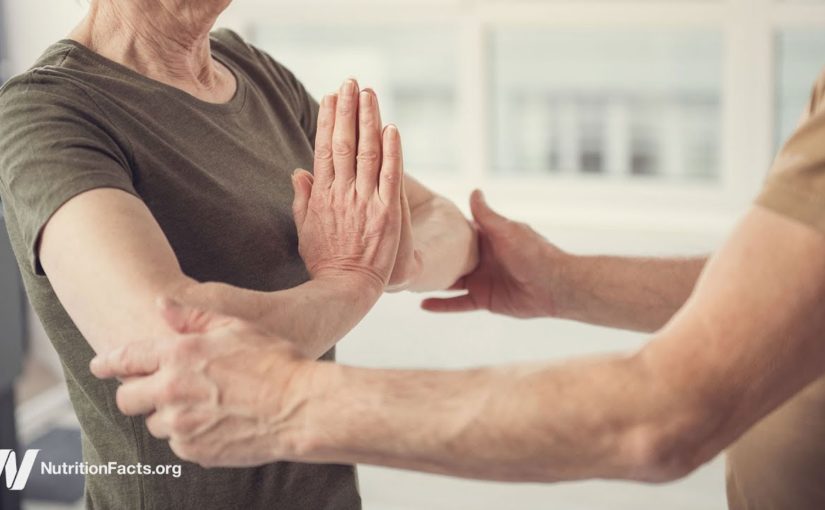
 However, the findings may need
to be interpreted with caution, since nearly half of the studies
didn’t define and adhere to a well-planned exercise regimen
in the control group. Furthermore, an exercise intervention
comparable in intensity to yoga was followed only in three
out of the eight studies included. And, for what it’s worth,
The majority of the studies, six out of eight, were from India. When yoga was carefully
compared to sham yoga, which consisted of chair exercises,
standing exercises, and slow walking to match
the yoga session, the relative yoga
benefits evaporated.
Both yoga and sham yoga had identical effects
on blood sugar status. Hence, further well-controlled
Randomized trials are required prior to drawing conclusions
about the benefits of yoga in comparison to physical exercise
in patients with diabetes. Similar tentative conclusions were
reached for yoga for osteoarthritis. Put all the studies together
and yoga may indeed be effective for improving pain, function,
and stiffness in individuals with osteoarthritis of the knee,
compared not only to doing nothing but compared
to other kinds of exercise. They had some issues with
the quality of some of the studies, and so only a weak recommendation
for the use of yoga for osteoarthritis, but hey, if you like yoga or if yoga
is the only kind of exercise you’re willing to do, then
It’s probably better than nothing. Finally, in this video,
Let’s look at the effects of yoga compared to active and inactive
controls meaning like compared to other exercise regimens
or just like doing nothing on physical function and
health-related quality of life in adults aged 60 and older. Compared to doing nothing,
They found clear evidence that yoga improves physical function
and psychological well-being in older adults, so it definitely
better than nothing.
What about compared
to other exercises? Yoga pulled ahead for lower limb
strength and lower body flexibility, but for improving balance,
mobility, and walking speed, yoga appeared comparable. Psychologically, yoga appeared
to beat out other exercises for alleviating depression
in older adults, but not anxiety or perceived
mental health in general.
However, the findings may need
to be interpreted with caution, since nearly half of the studies
didn’t define and adhere to a well-planned exercise regimen
in the control group. Furthermore, an exercise intervention
comparable in intensity to yoga was followed only in three
out of the eight studies included. And, for what it’s worth,
The majority of the studies, six out of eight, were from India. When yoga was carefully
compared to sham yoga, which consisted of chair exercises,
standing exercises, and slow walking to match
the yoga session, the relative yoga
benefits evaporated.
Both yoga and sham yoga had identical effects
on blood sugar status. Hence, further well-controlled
Randomized trials are required prior to drawing conclusions
about the benefits of yoga in comparison to physical exercise
in patients with diabetes. Similar tentative conclusions were
reached for yoga for osteoarthritis. Put all the studies together
and yoga may indeed be effective for improving pain, function,
and stiffness in individuals with osteoarthritis of the knee,
compared not only to doing nothing but compared
to other kinds of exercise. They had some issues with
the quality of some of the studies, and so only a weak recommendation
for the use of yoga for osteoarthritis, but hey, if you like yoga or if yoga
is the only kind of exercise you’re willing to do, then
It’s probably better than nothing. Finally, in this video,
Let’s look at the effects of yoga compared to active and inactive
controls meaning like compared to other exercise regimens
or just like doing nothing on physical function and
health-related quality of life in adults aged 60 and older. Compared to doing nothing,
They found clear evidence that yoga improves physical function
and psychological well-being in older adults, so it definitely
better than nothing.
What about compared
to other exercises? Yoga pulled ahead for lower limb
strength and lower body flexibility, but for improving balance,
mobility, and walking speed, yoga appeared comparable. Psychologically, yoga appeared
to beat out other exercises for alleviating depression
in older adults, but not anxiety or perceived
mental health in general.
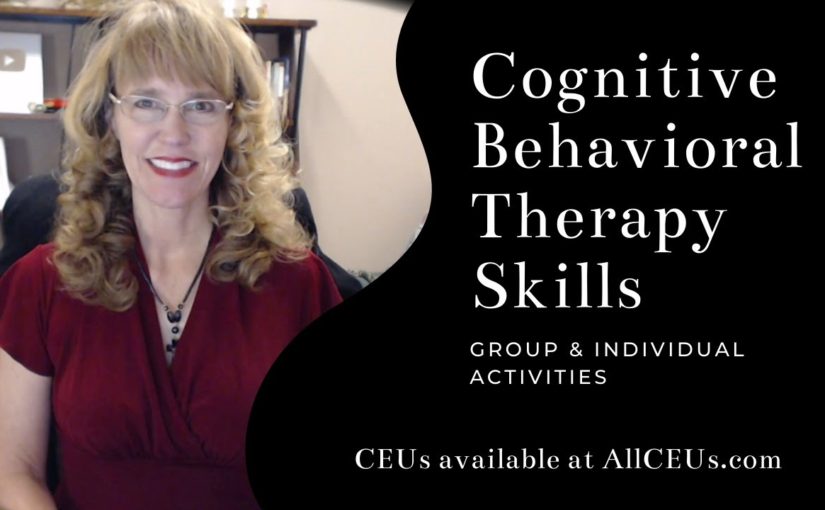
 If it was your best friend’s experience your best friend came to you and said I
just got into such-and-such college would you say awesome or would you say
anybody can get in there how would that go ask them what is scary about
accepting these positive things that you might have had an
accomplishment for some people it means that it might mean other people expect
more of them for other people they just don’t know how to accept the positive
They don’t know how to accept compliments they don’t know how to be
the center of attention and they don’t like it and then we want to look at why
that is sometimes we disqualify the positive because it fails to meet
someone else’s standards so as people might that be true here you know I know
When I was growing up and going through college and going through school and
everything got my doctorate but I will always not being not
a real doctor because a Ph.D. is not an MD and I’m like really
So is it somebody else’s standards or can I feel good about having a Ph.D. egocentrism My perspective is the only
perspective I’ll being egocentric but it doesn’t work
most of the time so encouraging people to take alternate perspectives
Maybe you’re texting with someone and they say something that is not what you
interpret as not the nicest thing and this happens in text messages a lot and
they get upset now an egocentric thinking error would say that purse is
just grumpy today Someone who’s taking other perspectives would stop and go
back and read the text and go I wonder if maybe this could have been taken some
other another you know obvious reaction is not what I intended
So egocentrism if you hold on to that I don’t understand anybody else because
You know I don’t see a problem with anything personalizing and mind-reading This is when you assume that everybody’s
frowning because of something you did your boss walks down the hallway
and looks at you and grimaces and continues to walk on oh I must have done
something wrong No maybe he just got out of his senior management meeting that
was five hours long and he’s got to go to the bathroom you know there could be
a hundred different explanations for why that happened so encourage clients to
ask themselves what some alternate explanations for this event that are
doesn’t involve me you know why this might have happened if they hold
on to that, I must have done something wrong but as soon as their boss calls
them up and goes hey can you come to my office for a second you know where their
thoughts are going to go I’m getting fired I’m going to get laid off I don’t
know what it was that I did wrong but he walked by me two weeks ago in the
hallway and grimaced and I’m just I’m the worst person in the whole world
But where did that come from so encouraging people to not necessarily
assume they know what’s going on in someone else’s mind and not
automatically attributing every person’s negative behavior to something they did
How often and then ask them how often has it been about you
now think about the last 10 times you’ve taken something personally how many of
Those 10 times has it been about something you did versus something with
the other person then the availability heuristic remembering what’s most
prominent in your mind so asking clients what the facts ah the most obvious
One that we talk about is plane crashes You know it is very dangerous to fly on a
plane because you hear about all those plane crashes well yeah you hear about
the airlines crashes but don’t hear about the 20,000 every day that land
safely so you remember it and it seems more dangerous because that’s what is in
your mind that’s what is available to you that’s what you’ve based your
thought processes on because maybe you didn’t know that 20,000 planes or more
fly and land just perfectly every day this can also be true with people
remembering what’s most prominent in your mind sometimes and this can be very
very true in domestically violent relationships if somebody falls in love
with someone and that person is just the greatest person since sliced bread for
the first four months and then the cycle starts and there’s this little tiny
a sliver of the honeymoon period after the battering cycle and the person’s like
That’s the person I fell in love with that’s what I remember and they try to
focus on that that’s most prominent in their mind and they ignore the rest of
the stuff so we need to encourage people to look objectively at the facts magnifying high and
low probability outcomes what are the chances that this is going to happen how
Many clients have worked with have gone to the doctor and gotten into a
physical or get a test run and then the doctor had to call them back and
This could be true for you too and the doctor had to call them back two or
Three days later when the tests came back from the lab and that whole three
days they were just in a panic because they
were afraid they were going to get some terminal diagnosis so thinking about
high and low probability outcomes another instance or example of
magnification is somebody that thinks this is the end of the world whatever it
I think I’ve told you before my little story about um tripping when I
was walking down the hall at work and falling and yeah it was embarrassing my
folders went everywhere and yeah but in that big scheme of things will it matter
That much from now you know are people going to think Oh she is such a clutch she
must be a ditz too no I mean they may have thought that at that time I don’t
know but you know in six months nobody’s going to remember and then ask them in
the past when something like this has happened when you’ve had to get a test
done and you’ve had to wait on results or if you’ve done something that was
embarrassing and you didn’t think you thought everybody was going to remember
it forever how did you tolerate it how did you learn to deal with it building
on those strengths that they already have all-or-nothing thinking errors
These are things like love versus hate I love them or I hate them it’s all or
Nothing she does this all the time or she never does it if I’m going to do it
I’m going to do it perfectly or I’m not going to do it at all thank you all good
intentions or all bad intentions you know sometimes we do things with good
intentions that have some bad repercussions so did we do it with all
Bad intentions are all good intentions and the answer is neither most of the
time life is kind of in that middle-ground gray area encouraging clients to
Look and find examples where something hasn’t been one of the polls when have
they done something that they’re proud of that wasn’t perfect or when again
When has somebody else done something that they were proud of that wasn’t
perfect remembering that with availability
heuristic remembering how often something happens and how long it’s
been since you’ve seen that behavior and remember that sometimes good times are
amazing but how frequent are they compared with the bad times another thinking error is a belief in a
just world or a fallacy of fairness I just asked clients to identify for good
people you know who’ve had bad things happen and in in reality we all have bad
things happen good people do bad people do in between people do attributional
errors and this is a pet of mine you know labeling yourself is not a behavior so
global versus specific and I am stupid versus I’m stupid at math I don’t have
good math skills it’s not about me it’s about the skills I can change skills
stable I am and I always will be versus it’s something I can change it’s
something I can learn internally It’s about me as a person versus it’s about a
skill deficit or something I could learn or change and there’s you know lots of
information on attributions out there on the internet if you need a refresher on
it but we find that a lot of people who have dysphoria have negative global
stable internal attributions so questions for clients remember the
beliefs equal thoughts and facts plus personal interpretation another way of
saying it is reality is 10% perception is 10% reality and 90% interpretation so
what are the facts for and against my belief is the belief based on facts or
Feelings Does the belief focus on one aspect or the whole situation Does the
belief seem to use any thinking errors what are alternate explanations what
Would you tell your child or best friend if they had this belief how would you
want someone to tell what would you want someone to tell you about this belief so
If you’re telling somebody about this what are you hoping they’re going to say
in return and finally, how is this belief moving you toward what and who is
important to you or moving you away from what or who is important to you now they
can do a worksheet and have all of these or you can pick one or two of these
questions that are most salient for your clients but they can have kind of at
their fingertips so as they’re going through the day and something happens
They can ask themselves ok what’s an alternate explanation Or you know
Whatever it is this salient for that client’s irrational thoughts how do these
thoughts impact the client’s emotions health relationships and perceptions of
the world you know this is what we want to ask them How is this thought
impacting you globally how may this thought have been helpful in the past
Where did it come from How does it make sense from when you formed it in the
past when you’re dealing with it ask the person if the thought is bringing you
closer to those that are important Are there any examples of this thought or
belief not being true and how can the statement be made less global less
all-encompassing so it’s about a specific incident a specific situation
less stable which means you can change it and less internal which means it’s
not about who you are as a person but maybe something that you do or a skill
that you have so we’re going to go through some of these thoughts real
Quickly here mistakes are never acceptable and if I make one it means
that I’m incompetent well never is kind of stable and I am incompetent is kind
of global, that’s also that extreme all-or-nothing thinking so you can see
where these cognitive distortions end up leading to unhelpful beliefs
When somebody disagrees with me it’s a personal attack Well there’s
Personalization If I ever heard it before maybe it’s not about you may be
They’re having a bad day and you just happen to be the unlucky target or maybe
they’re disagreeing with you because they have a different point of view and
It’s not a personal attack it’s just their point of view If someone
criticizes or rejects me there must be something wrong with me
personalization all-or-nothing thinking global stable and internal something
wrong with me as a person to feel good about myself others must approve of me
Now this is one we’ve talked about external validation before and we can’t
control other people to feel good about yourself how can you do that
Besides necessarily requiring other people to approve of you to be
content in life I must be liked by all people Wow I’ve never met anybody who’s
liked by all people I’ve never even met anybody who’s been hated by all people
but it’s important to help clients see how this is dramatic to say all
people and for them to be content everybody has to like them
I mean I like to be liked but if everybody doesn’t like me you know
That’s pretty understandable My true value as an individual depends on what
others think of me I would challenge this one this is all you know
Also very personally I would challenge people to look at and say it
so your child’s value as an individual depends on what other people think of
Most people would say no but the perspective thing nothing ever turns
out the way you want it to okay all-or-nothing thinking and probably
availability heuristic if something bad just happened then they may be focusing
on that which causes them to focus on all the other bad things in the past
that have happened not to focus on that is okay you know bad thing
happen but look at all these good things I won’t try anything new unless I will
be good at it this fear of failure fear of rejection
It just really paralyzes a lot of people when they get stuck with that thinking
the area that they have to be perfect I am in total control of anything bad that
happens is my fault well that’s egocentric and personal if
They think they’re in total control that’s their perception of how the world
Do they think if they’ve got everybody on marionette strings anything
bad in the world that happens is their fault how powerful are they
I feel happy about uh if I feel happy about life something will go wrong
It happens sometimes but let’s look at times when you’ve been happy that
something hasn’t gone wrong you know let’s get rid of that all-or-nothing
thinking it’s not my fault my life didn’t go the way I wanted could be true
but it seems like that’s making you unhappy so what do we do about that if
I’m not in an intimate relationship I’m alone
No, again that’s pretty extreme I’m either in an intimate relationship or I
am alone and a loner and you know it’s just me and my 17 cats which follows
with there’s no gray area so encouraging people to look at what these
beliefs are saying important thoughts impact behaviors and emotional and
Physical reactions emotional and physical reactions impact thoughts and
interpretations of events so if you do something and it’s pleasurable
and you have a great physical reaction you know let’s take bungee jumping or
Skydiving if you go out there and it’s scary but you do it and you’re just like
Whoa what a rush Your interpretation of that is probably going to be good which
means you’ll probably do it again if you go out there and it’s just the most
horrible experience you’ve ever had you’re probably not going to do it again
and your interpretation of it is going to be not good which is going to make it
hard to understand why other people would do it irrational
thinking patterns are often caused by cognitive distortions so let’s just look
back at some of those because there are a lot fewer cognitive distortions or
general ways of thinking about the world then there are thinking errors because
There are lots and lots of thinking errors Cognitive distortions are often schemas
which were formed based on faulty inaccurate or immature knowledge or
understanding and by identifying the thoughts of the hecklers you know the
automatic tapes that maintain our unhappiness the person can choose
whether to accept those thoughts or change them.
If it was your best friend’s experience your best friend came to you and said I
just got into such-and-such college would you say awesome or would you say
anybody can get in there how would that go ask them what is scary about
accepting these positive things that you might have had an
accomplishment for some people it means that it might mean other people expect
more of them for other people they just don’t know how to accept the positive
They don’t know how to accept compliments they don’t know how to be
the center of attention and they don’t like it and then we want to look at why
that is sometimes we disqualify the positive because it fails to meet
someone else’s standards so as people might that be true here you know I know
When I was growing up and going through college and going through school and
everything got my doctorate but I will always not being not
a real doctor because a Ph.D. is not an MD and I’m like really
So is it somebody else’s standards or can I feel good about having a Ph.D. egocentrism My perspective is the only
perspective I’ll being egocentric but it doesn’t work
most of the time so encouraging people to take alternate perspectives
Maybe you’re texting with someone and they say something that is not what you
interpret as not the nicest thing and this happens in text messages a lot and
they get upset now an egocentric thinking error would say that purse is
just grumpy today Someone who’s taking other perspectives would stop and go
back and read the text and go I wonder if maybe this could have been taken some
other another you know obvious reaction is not what I intended
So egocentrism if you hold on to that I don’t understand anybody else because
You know I don’t see a problem with anything personalizing and mind-reading This is when you assume that everybody’s
frowning because of something you did your boss walks down the hallway
and looks at you and grimaces and continues to walk on oh I must have done
something wrong No maybe he just got out of his senior management meeting that
was five hours long and he’s got to go to the bathroom you know there could be
a hundred different explanations for why that happened so encourage clients to
ask themselves what some alternate explanations for this event that are
doesn’t involve me you know why this might have happened if they hold
on to that, I must have done something wrong but as soon as their boss calls
them up and goes hey can you come to my office for a second you know where their
thoughts are going to go I’m getting fired I’m going to get laid off I don’t
know what it was that I did wrong but he walked by me two weeks ago in the
hallway and grimaced and I’m just I’m the worst person in the whole world
But where did that come from so encouraging people to not necessarily
assume they know what’s going on in someone else’s mind and not
automatically attributing every person’s negative behavior to something they did
How often and then ask them how often has it been about you
now think about the last 10 times you’ve taken something personally how many of
Those 10 times has it been about something you did versus something with
the other person then the availability heuristic remembering what’s most
prominent in your mind so asking clients what the facts ah the most obvious
One that we talk about is plane crashes You know it is very dangerous to fly on a
plane because you hear about all those plane crashes well yeah you hear about
the airlines crashes but don’t hear about the 20,000 every day that land
safely so you remember it and it seems more dangerous because that’s what is in
your mind that’s what is available to you that’s what you’ve based your
thought processes on because maybe you didn’t know that 20,000 planes or more
fly and land just perfectly every day this can also be true with people
remembering what’s most prominent in your mind sometimes and this can be very
very true in domestically violent relationships if somebody falls in love
with someone and that person is just the greatest person since sliced bread for
the first four months and then the cycle starts and there’s this little tiny
a sliver of the honeymoon period after the battering cycle and the person’s like
That’s the person I fell in love with that’s what I remember and they try to
focus on that that’s most prominent in their mind and they ignore the rest of
the stuff so we need to encourage people to look objectively at the facts magnifying high and
low probability outcomes what are the chances that this is going to happen how
Many clients have worked with have gone to the doctor and gotten into a
physical or get a test run and then the doctor had to call them back and
This could be true for you too and the doctor had to call them back two or
Three days later when the tests came back from the lab and that whole three
days they were just in a panic because they
were afraid they were going to get some terminal diagnosis so thinking about
high and low probability outcomes another instance or example of
magnification is somebody that thinks this is the end of the world whatever it
I think I’ve told you before my little story about um tripping when I
was walking down the hall at work and falling and yeah it was embarrassing my
folders went everywhere and yeah but in that big scheme of things will it matter
That much from now you know are people going to think Oh she is such a clutch she
must be a ditz too no I mean they may have thought that at that time I don’t
know but you know in six months nobody’s going to remember and then ask them in
the past when something like this has happened when you’ve had to get a test
done and you’ve had to wait on results or if you’ve done something that was
embarrassing and you didn’t think you thought everybody was going to remember
it forever how did you tolerate it how did you learn to deal with it building
on those strengths that they already have all-or-nothing thinking errors
These are things like love versus hate I love them or I hate them it’s all or
Nothing she does this all the time or she never does it if I’m going to do it
I’m going to do it perfectly or I’m not going to do it at all thank you all good
intentions or all bad intentions you know sometimes we do things with good
intentions that have some bad repercussions so did we do it with all
Bad intentions are all good intentions and the answer is neither most of the
time life is kind of in that middle-ground gray area encouraging clients to
Look and find examples where something hasn’t been one of the polls when have
they done something that they’re proud of that wasn’t perfect or when again
When has somebody else done something that they were proud of that wasn’t
perfect remembering that with availability
heuristic remembering how often something happens and how long it’s
been since you’ve seen that behavior and remember that sometimes good times are
amazing but how frequent are they compared with the bad times another thinking error is a belief in a
just world or a fallacy of fairness I just asked clients to identify for good
people you know who’ve had bad things happen and in in reality we all have bad
things happen good people do bad people do in between people do attributional
errors and this is a pet of mine you know labeling yourself is not a behavior so
global versus specific and I am stupid versus I’m stupid at math I don’t have
good math skills it’s not about me it’s about the skills I can change skills
stable I am and I always will be versus it’s something I can change it’s
something I can learn internally It’s about me as a person versus it’s about a
skill deficit or something I could learn or change and there’s you know lots of
information on attributions out there on the internet if you need a refresher on
it but we find that a lot of people who have dysphoria have negative global
stable internal attributions so questions for clients remember the
beliefs equal thoughts and facts plus personal interpretation another way of
saying it is reality is 10% perception is 10% reality and 90% interpretation so
what are the facts for and against my belief is the belief based on facts or
Feelings Does the belief focus on one aspect or the whole situation Does the
belief seem to use any thinking errors what are alternate explanations what
Would you tell your child or best friend if they had this belief how would you
want someone to tell what would you want someone to tell you about this belief so
If you’re telling somebody about this what are you hoping they’re going to say
in return and finally, how is this belief moving you toward what and who is
important to you or moving you away from what or who is important to you now they
can do a worksheet and have all of these or you can pick one or two of these
questions that are most salient for your clients but they can have kind of at
their fingertips so as they’re going through the day and something happens
They can ask themselves ok what’s an alternate explanation Or you know
Whatever it is this salient for that client’s irrational thoughts how do these
thoughts impact the client’s emotions health relationships and perceptions of
the world you know this is what we want to ask them How is this thought
impacting you globally how may this thought have been helpful in the past
Where did it come from How does it make sense from when you formed it in the
past when you’re dealing with it ask the person if the thought is bringing you
closer to those that are important Are there any examples of this thought or
belief not being true and how can the statement be made less global less
all-encompassing so it’s about a specific incident a specific situation
less stable which means you can change it and less internal which means it’s
not about who you are as a person but maybe something that you do or a skill
that you have so we’re going to go through some of these thoughts real
Quickly here mistakes are never acceptable and if I make one it means
that I’m incompetent well never is kind of stable and I am incompetent is kind
of global, that’s also that extreme all-or-nothing thinking so you can see
where these cognitive distortions end up leading to unhelpful beliefs
When somebody disagrees with me it’s a personal attack Well there’s
Personalization If I ever heard it before maybe it’s not about you may be
They’re having a bad day and you just happen to be the unlucky target or maybe
they’re disagreeing with you because they have a different point of view and
It’s not a personal attack it’s just their point of view If someone
criticizes or rejects me there must be something wrong with me
personalization all-or-nothing thinking global stable and internal something
wrong with me as a person to feel good about myself others must approve of me
Now this is one we’ve talked about external validation before and we can’t
control other people to feel good about yourself how can you do that
Besides necessarily requiring other people to approve of you to be
content in life I must be liked by all people Wow I’ve never met anybody who’s
liked by all people I’ve never even met anybody who’s been hated by all people
but it’s important to help clients see how this is dramatic to say all
people and for them to be content everybody has to like them
I mean I like to be liked but if everybody doesn’t like me you know
That’s pretty understandable My true value as an individual depends on what
others think of me I would challenge this one this is all you know
Also very personally I would challenge people to look at and say it
so your child’s value as an individual depends on what other people think of
Most people would say no but the perspective thing nothing ever turns
out the way you want it to okay all-or-nothing thinking and probably
availability heuristic if something bad just happened then they may be focusing
on that which causes them to focus on all the other bad things in the past
that have happened not to focus on that is okay you know bad thing
happen but look at all these good things I won’t try anything new unless I will
be good at it this fear of failure fear of rejection
It just really paralyzes a lot of people when they get stuck with that thinking
the area that they have to be perfect I am in total control of anything bad that
happens is my fault well that’s egocentric and personal if
They think they’re in total control that’s their perception of how the world
Do they think if they’ve got everybody on marionette strings anything
bad in the world that happens is their fault how powerful are they
I feel happy about uh if I feel happy about life something will go wrong
It happens sometimes but let’s look at times when you’ve been happy that
something hasn’t gone wrong you know let’s get rid of that all-or-nothing
thinking it’s not my fault my life didn’t go the way I wanted could be true
but it seems like that’s making you unhappy so what do we do about that if
I’m not in an intimate relationship I’m alone
No, again that’s pretty extreme I’m either in an intimate relationship or I
am alone and a loner and you know it’s just me and my 17 cats which follows
with there’s no gray area so encouraging people to look at what these
beliefs are saying important thoughts impact behaviors and emotional and
Physical reactions emotional and physical reactions impact thoughts and
interpretations of events so if you do something and it’s pleasurable
and you have a great physical reaction you know let’s take bungee jumping or
Skydiving if you go out there and it’s scary but you do it and you’re just like
Whoa what a rush Your interpretation of that is probably going to be good which
means you’ll probably do it again if you go out there and it’s just the most
horrible experience you’ve ever had you’re probably not going to do it again
and your interpretation of it is going to be not good which is going to make it
hard to understand why other people would do it irrational
thinking patterns are often caused by cognitive distortions so let’s just look
back at some of those because there are a lot fewer cognitive distortions or
general ways of thinking about the world then there are thinking errors because
There are lots and lots of thinking errors Cognitive distortions are often schemas
which were formed based on faulty inaccurate or immature knowledge or
understanding and by identifying the thoughts of the hecklers you know the
automatic tapes that maintain our unhappiness the person can choose
whether to accept those thoughts or change them.